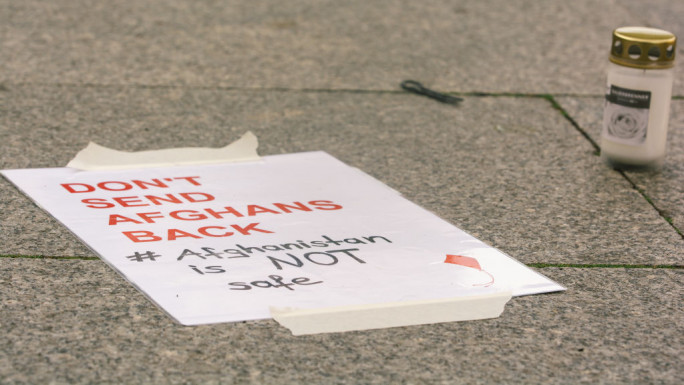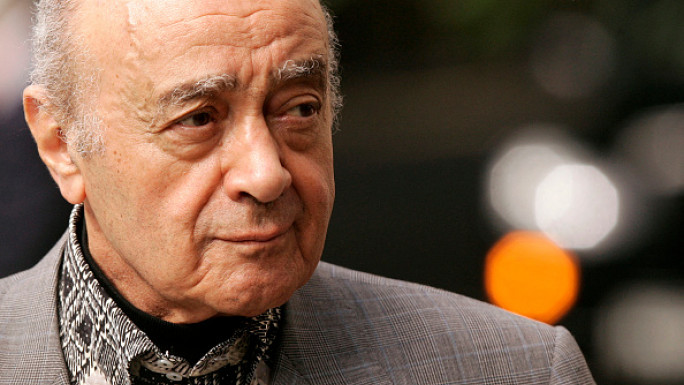
Revolutionary motives and Syria's uprising - part 1
Since the beginning of the Syrian revolution in 2011, two factors have been on my mind that will determine how the story might end. First is the position of the United States, and how its motives could impact the battlefields of Syria.
Second, there are the roles played by the different forces that are physically part of the uprising. Separately or combined, these two factors will decide the fate of Syria.
I have come to believe that the revolutionary forces no longer have the power to determine the outcome of the uprising, and hence, I have become pessimistic when I analyse the situation in Syria.
A war not worth fighting
It was also clear from the start of the uprising that the United States would not intervene to help the revolutionary forces.
The United States had no stake in the war and has little to gain by backing either the rebels or the regime. It appears Washington was perfectly content to allow the situation to slide into chaos and see the country destroyed by the regime.
For the United States, the Baathist government was the pragmatic party in the conflict. After all, Syria had not directly threatened Washington's number one ally in the region, Israel, for the past four decades.
With US troops returning home from Iraq and Afghanistan, committing forces to a new war in the region would have been political suicide.
Syria's ethnic and religious makeup very much resembles that of Iraq, a complex situation to understand and a potential quagmire for any intervening forces. Syria is surrounded by other fragile states such as Jordan and Lebanon - and Israel. Regime change could ultimately threaten US allies, so there was even less incentive for the US to intervene in the Syrian conflict.
Duty of opinion
From this, we see how United States foreign policy has shaped the thoughts and actions of the Syrian uprising. The Syrian opposition have had to second-guess US plans, and two misleading trends emerged that have dominated their messages to the world.
The opposition believed that United States intervention was inevitable, and two camps arose among the rebels that adopted rhetoric that prepared for this eventuality. One side made a clear stand against foreign intervention, while the other requested the US bomb regime targets.
It has to be said that both sides, one populist and the other ideological, were equally weak.
Meanwhile, in Damascus, the regime rightly assumed that the United States would not intervene in the conflict. With certainty on its side, the regime knew that it could act with impunity. Damascus kept a close eye on Washington, using state department announcements as a barometer for just how far they could push the war.
Behind the barricades
From the offset, opposition forces inside and outside Syria have been isolated and crushed.
The most vulnerable of these groups were the opposition inside Syria. Due to the regime's long-held restrictions of civil society and freedom of speech, regime opponents had been excluded from political life for decades and had no real outreach within Syrian society.
Its factions were divided and became distracted by petty personal squabbles, rather than the towering political questions that dominated the reality of the situation. The opposition barricaded themselves behind obsolete slogans.
This was natural for an opposition founded on ideological beliefs, whether Nasserite, nationalist or leftist. Briefly, all were united behind "the revolution" but soon the movement came to a standstill. At present, the rhetoric from these groups resemble the slogans from the past. They have failed to deal with the realities of their situation.
| The opposition barricaded itself behind obsolete slogans. |
The few who have remained in the fight against the regime have barricaded themselves behind a brand name for the opposition that was manufactured by the media and was not forged by the revolution itself.
The political fig leaf it hid behind - "the internal opposition" - is repeated at every occasion, and it was exactly this term that ensured its immunity. In fact, the opposition no longer had any value once the uprising had begun. Gradually, this branch of the opposition became a closed clique due to its feelings of being unduly targeted when compared with the opposition outside Syria.
It exercised a ludicrous pattern in its thoughts and irrational behaviour, and soon the internal opposition degenerated into a clash of personalities and subjective interests.
Many opposition figures chose a political message that was elitist and condescending, setting it up to fail on all fronts. In essence, its demands and aspirations did not exceed the crumbs the regime had offered. Radical rhetoric was adopted, with more than a little linguistic manipulation, to keep it safe from the regime.
The regime was unaffected by its message, and in turn ignored the opposition's demands. The opposition then engaged in opportunistic political relationships with friends of the Syrian regime believing that it could influence their policies.
This article is an edited translation from our Arabic edition first published on 3 November.
Opinions expressed in this article remain those of the author and do not necessarily reflect the opinions of al-Araby al-Jadeed, its editorial board or staff.





![gaza hospital [getty]](/sites/default/files/styles/image_684x385/public/media/images/04CAB42E-7AB3-4448-B45F-B0E1D7D43091.jpg?h=d1cb525d&itok=XYFJ5dpl)


